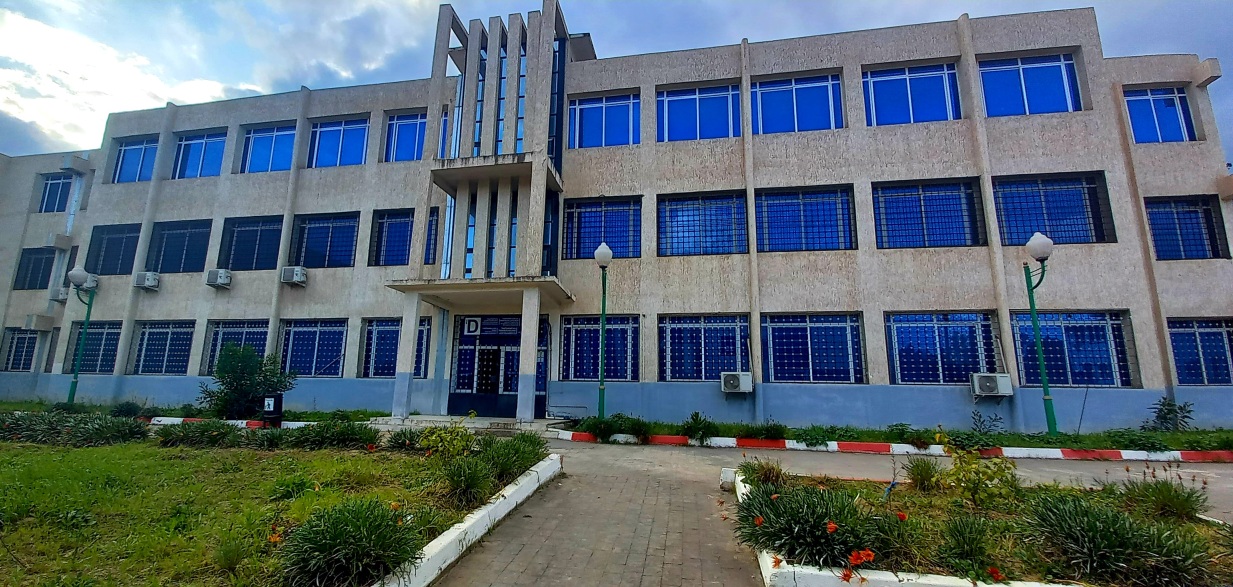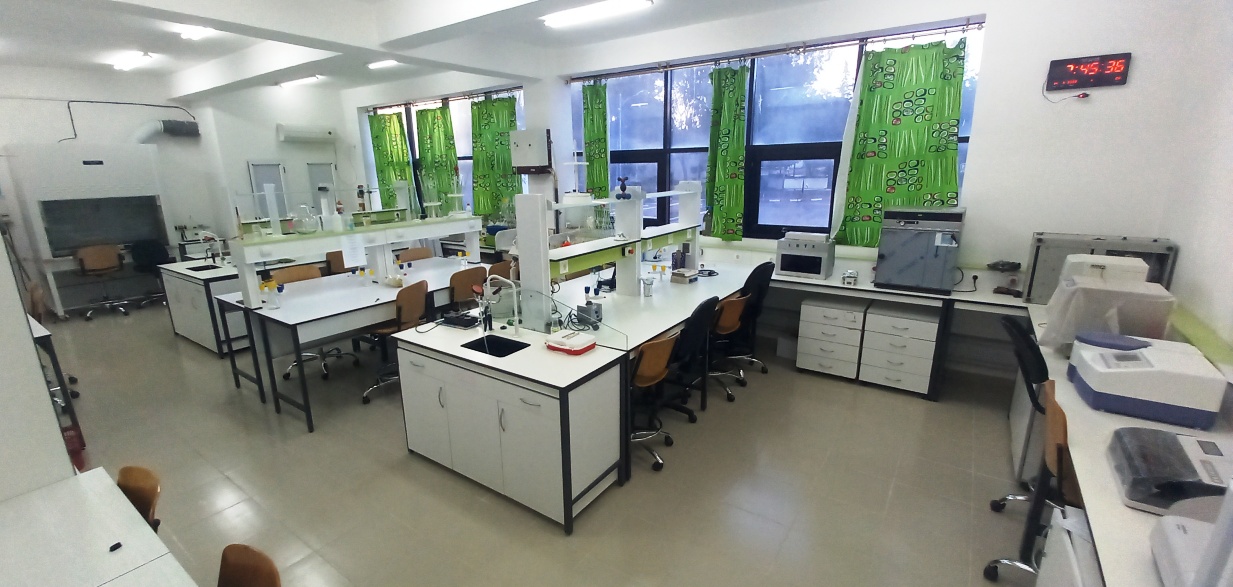Research Laboratory on Biochemistry and Environmental Toxicology
The biochemistry and environmental toxicology laboratory is a newly accredited laboratory (in 2012). Its main objectives are
- Assessing the impact of environmental pneumallergens by conducting immuno-allergological studies on different models: human population, cells in culture or experimental asthma model.
- Evaluation of the toxicity caused by environmental contaminants such as xenobiotics (heavy metals, pesticides, etc.), on the one hand on the biochemical and physiological parameters of the wistar rat, but also on certain micro-organisms.
- To study the various defence systems involved, such as enzymatic defence systems and inflammation mediators, which are likely to be unbalanced during cellular stress caused by natural or experimental treatment with pro-oxidant substances.
- Identifying the active biomolecules and researching the protective antioxidant effect of certain local medicinal plants exposed concomitantly to these disturbances caused by environmental pollutants.
- Evaluation of the antifungal and antibacterial effects (e.g. of strains of staphylococcus aureus) of aqueous extracts of medicinal plants and essential oils, alone and combined.
- Control of chemical and microbiological pollutants in the environment.
- Research into the development of aromatic plants, essential oil plants and plants with active ingredients recognised as being of economic interest on the one hand, and the determination of secondary metabolites with potential biological activity in Algerian medicinal plants on the other.

The multi-disciplinary nature of the research carried out at LBTE can be applied to various sectors, including the chemical (plant protection products and others) and pharmaceutical industries, water treatment companies (drinking, industrial and waste water), environmental services and research and development departments.
Research areas:
- Cellular response to intoxication by environmental stress agents and the different types of cellular and molecular disturbance.
- Evaluation of the toxicity caused by environmental contaminants such as xenobiotics (heavy metals, pesticides, etc.) on the biochemical and physiological parameters of the wistar rat and on certain micro-organisms.
- Assessing the impact of environmental pneumallergens by carrying out immuno-allergological studies on different models: human population, cells in culture or experimental asthma model.
- Identifying the active biomolecules and researching the protective antioxidant effect of certain local medicinal plants exposed concomitantly to these disturbances caused by environmental pollutants.
- Evaluation of the antifungal and antibacterial effects of aqueous extracts of medicinal plants and essential oils, alone and combined.


